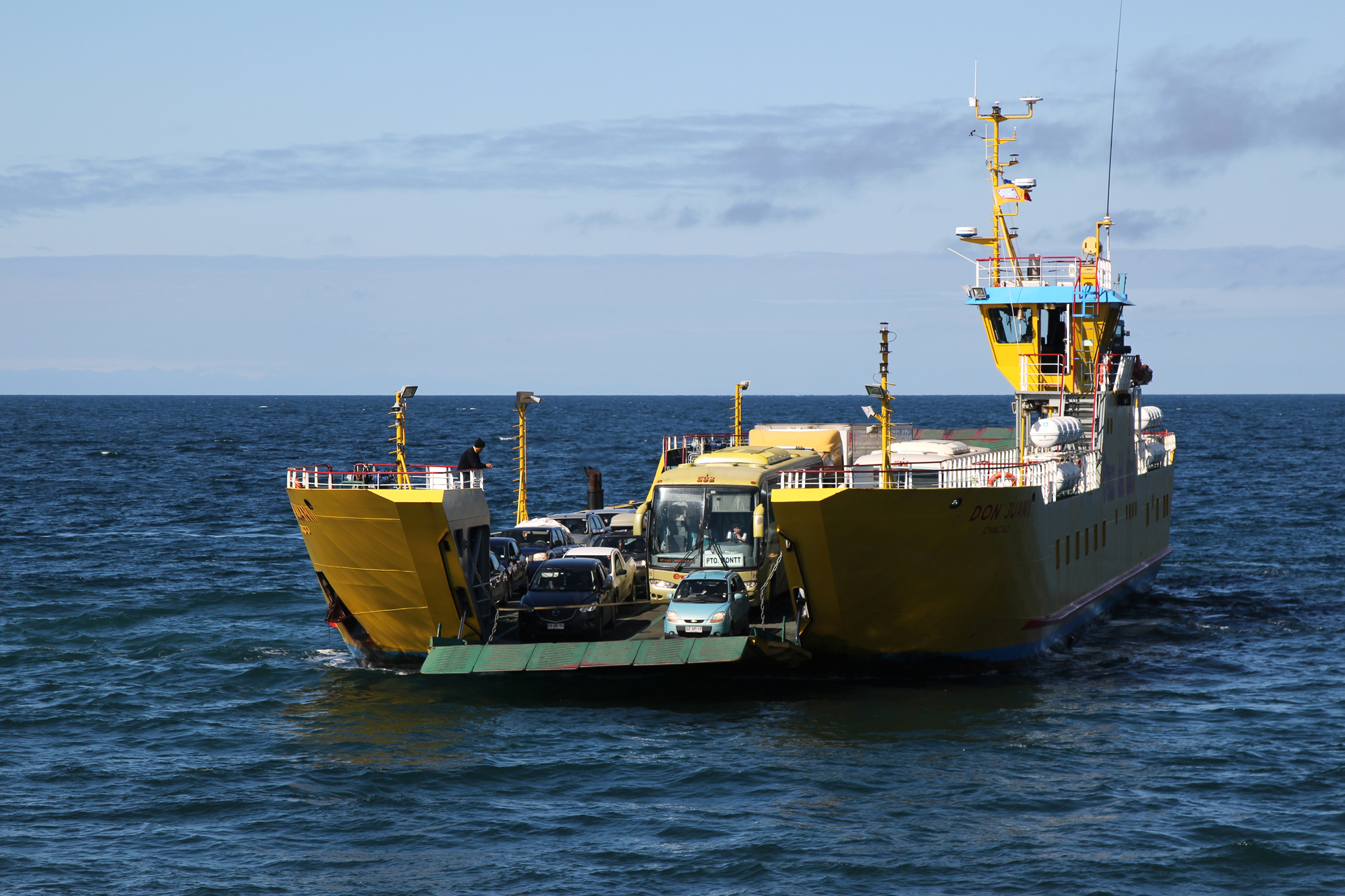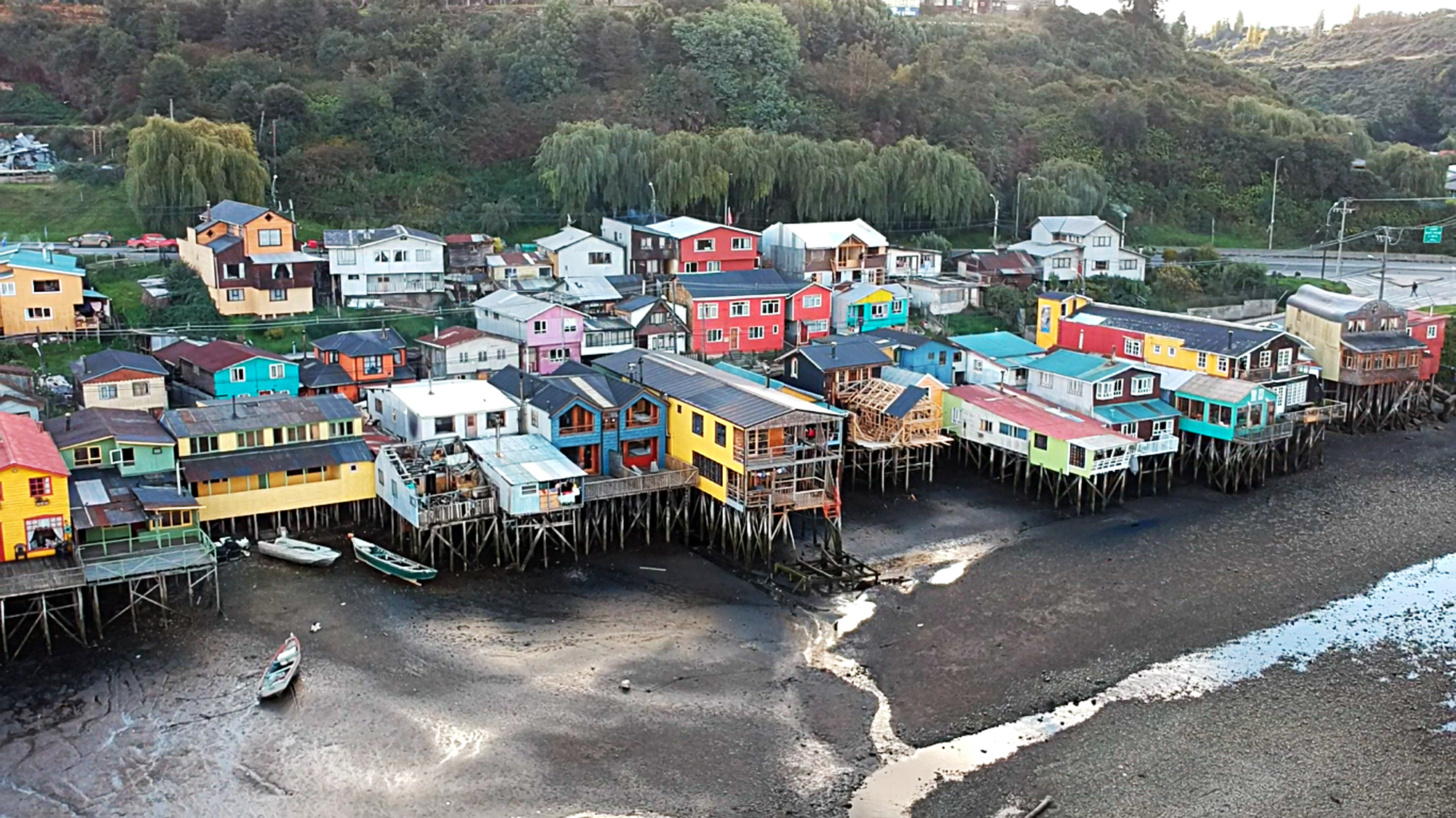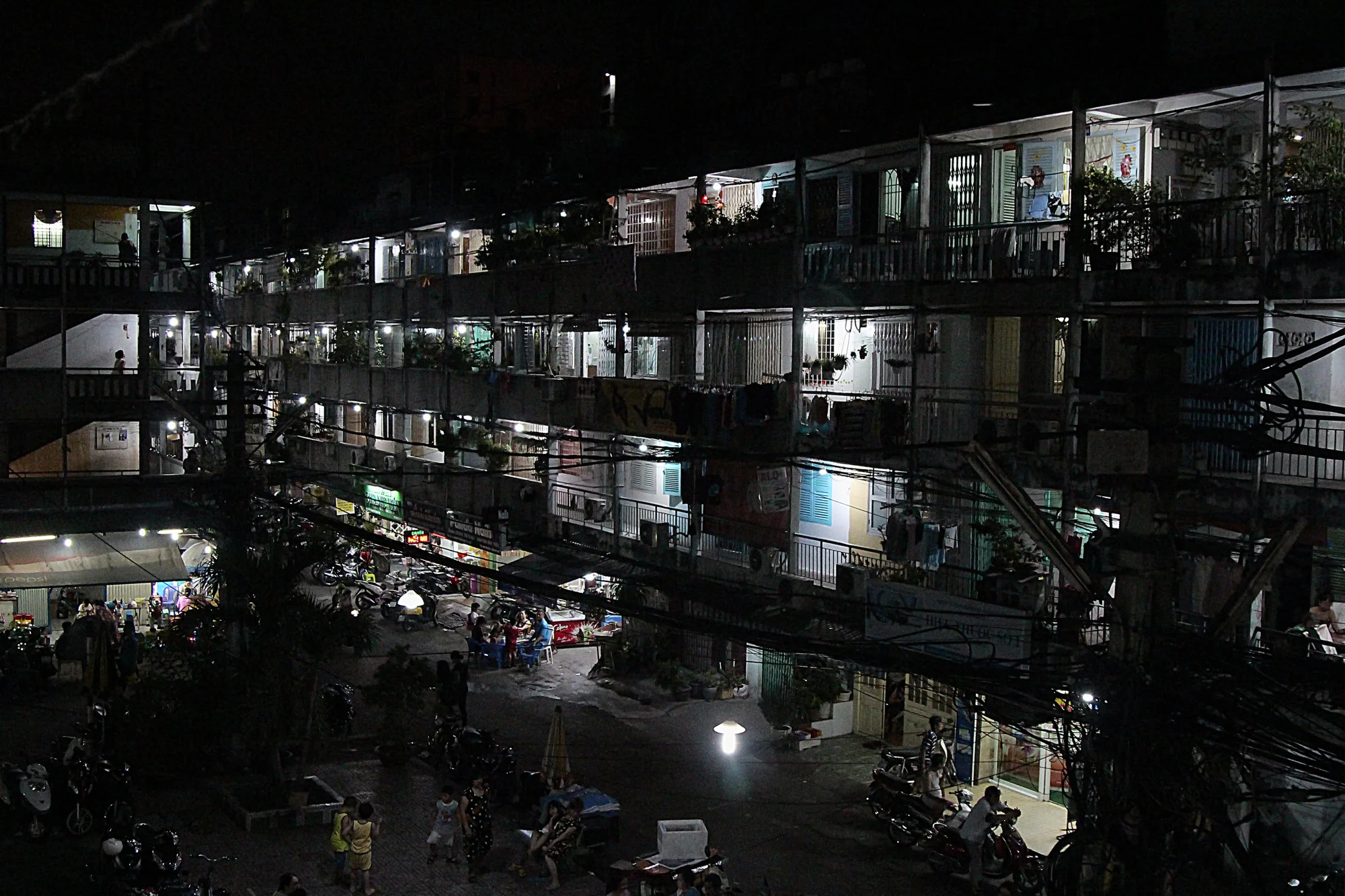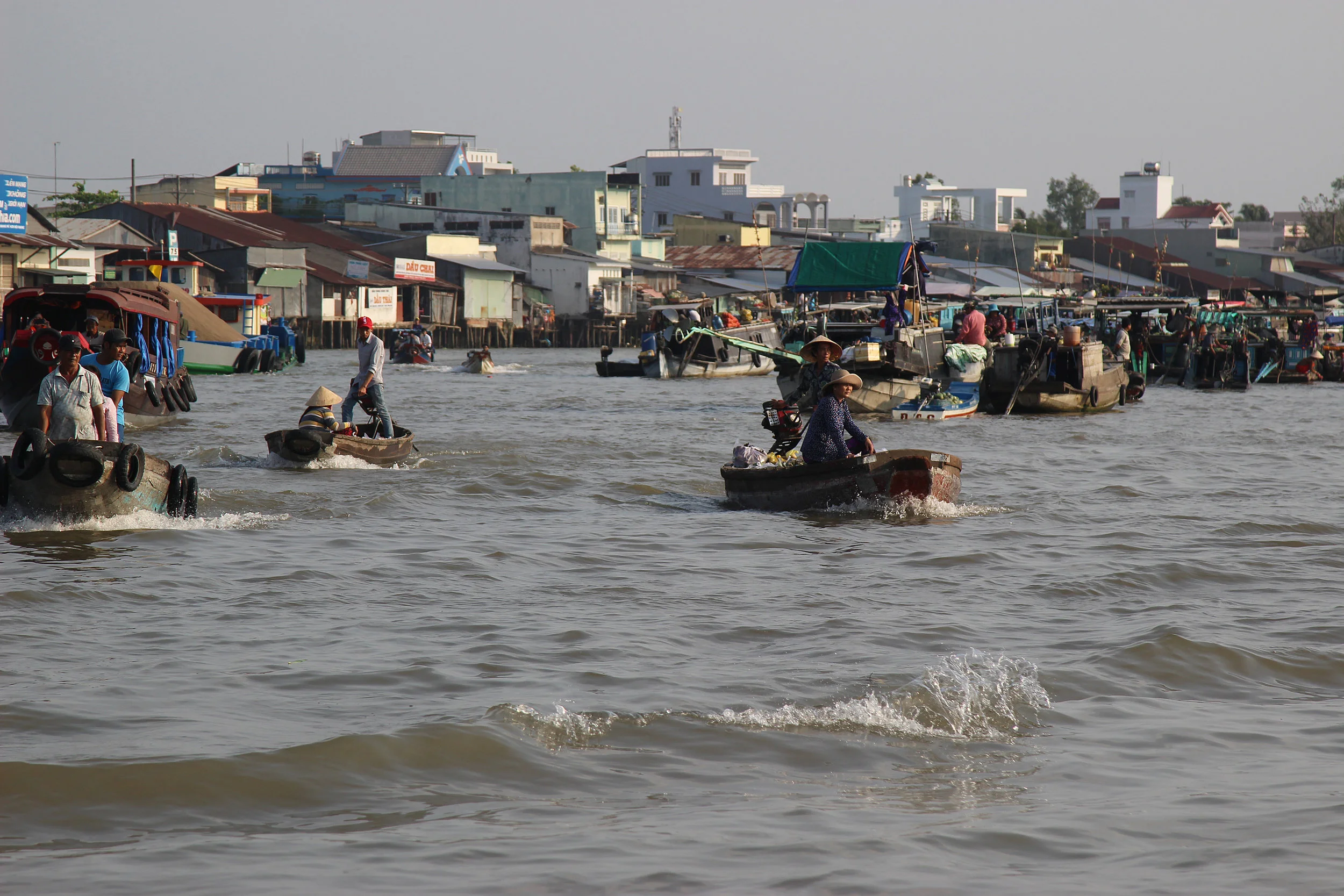The cruelty and the kindness of Chiloé

Crack. We weren’t going far. We were just planning on getting some air, taking some pictures, maybe wandering down to the little stony beach with the shipwreck to say hi to Freddy, our host. Crack. We didn’t make it.
Lori, if you’ve been reading along since the heady days of Bangkok, had gone through major surgery on the knee he’d obliterated in an accident. He’d dealt with the operation, the recovery, the helpless weeks in bed, the brutal physiotherapy. He’d refused to go home and marched on bravely, through Vietnam and Cambodia, up the Mekong Delta and over to South America. The knee wasn’t great, but it was tolerable until he slipped that day on the island. The light rain had turned the path into a deathtrap and his newborn ligament didn’t stand a chance.
Freddy, alerted by the shout, scrambled towards Lori. As we were helping him back up the hill. Freddy was babbling something about ice down his phone in quick fire Spanish. And as we limped back into the safety of the wooden house, it turned out that his daughter Yessica was a physiotherapist. Yep. In the middle of nowhere, by complete chance, we were living with a physiotherapist, an oyster farmer and a wonderful cook. Apart from a new knee, what more could you want?
There’s a place in the depths of Chile, called Chiloé. The biggest island in South America after Tierra del Fuego, it’s a mass of rolling hills, wild coast and striking wooden churches, many of which are UNESCO protected. But it’s more than that. Because Chiloé isn’t just a geographical area, it’s a feeling. And as we drove off the little car ferry that first day, we felt it instantly, that haunting hit of mysticism and spirituality that rolls in with the mist. Chiloé is a magical place. And we never say magical.
The main island is home to a population of fiercely proud inhabitants. And first things first, let’s get one thing straight: they’re not Chileños, they’re Chilotes. They live in sync with the sea, face to face with some pretty brutal weather. And Freddy and his family were a shining example. We’d chosen to stay with them at Turismo La Bahia, somewhat predictably, due to the food. If you’re in the land of great seafood and you get the chance to live on an oyster farm, you leap at it, right?
Back in the days when Freddy was a professional footballer, he looked up mid-match, saw Bernadita and promptly fell in love. The two of them live, tucked up in a house, where the air is warmed by blazing fire and scented by just-baked cake. Freddy, now a fisherman, goes out on the water every day. Our welcome snack is a plate of twenty oysters for the grownups and a modest twelve for the kids, with ice-cold white or homemade cordial to wash them down.
Bernadita is a shy, smiling swan, a vision of effortless hosting as she magics up trays of salmon and longaniza sausage or berry-studded tarts. Lori pops to the kitchen for a glass of water one evening, only to find her hammering away at a mountain of crabs, coaxing every morsel of flesh out to make crab empanadas for our breakfast. We eat every meal around the family table in the kitchen, but otherwise, we have our own wing. We talk and breathe and read in our living room lined with wood and bedroom piled with blankets. We watch the flames instead of the tv. We stare out through huge windows at the sea, grey and glinting under the steely sky. We sit on the beach in silence and spot a single, potentially lost penguin. We extend our stay a night.
It might sound like heaven, and inside, it is. But magic has its limits and out there, under the surface of Chiloé, lies another story. There are whispers, you see, conversations laced with unknown words and unthinkable horrors. Hushed voices talk of the evil warlocks known as brujos, whose initiation ceremony reportedly involved killing someone they loved before stitching their skin into a bag for their spellbook. The brujos used to steal and mutilate babies ‘for their needs’, breaking and twisting the children’s legs over their heads and grotesquely forking their tongues until they could no longer walk or talk. You couldn’t make this stuff up.
The air in Chiloé hangs heavy with superstition. And the legend of La Trauca is probably the most disturbing because it still lives on today. The original myth told the tale of a troll who, armed with seductive breath, tempted young virgins into the woods and swiftly impregnated them. It was a story exploited to explain away many an unplanned pregnancy, but we’re told quietly by the Chilotes we meet that it is still used as an excuse today, a cover up for domestic abuse and incest. Darkness upon darkness.
But the show must go on.
And so we head to Castro, the capital, where we hole up in a palafito for four days. These traditional wooden shacks perch on stilts in rainbow clusters, looking out onto the water and the sunrise and our clouds of frozen breath. Like some bleak and haunted version of Ibiza, Chiloé pulls the creatives in, and there are co-working spaces underway, along with restaurants full of soul and innovation. We sip strawberry myrtle sours from roughly glazed cups and gobble antique recipes in Travesía, a restaurant dreamed up by a historian and a chef. There, we find the most wonderful kids meal so far, a plate of simply seasoned vegetables, silken potato purée and the unadulterated glory of a slab of fresh white fish. At Mercadito, we eat most of the menu in a joyful atmosphere of good wine and nice guys and daring plates and circus decor. The food is particular to the island, and we find it piled up high in the soaring architecture of the Feria Alcade José Sandoval Gomez market on our last morning. We leave for the mainland that day, both kids grinning out from their carseats, surrounded by thick knots of cochayuyo and strings of spiced sausages, nets of purple native potatoes and delicate pale blue eggs.
We head back up this slender adventure of a country, happy that we made it this far south. That we found a place with so few tourists, an island under a spell. Because Chiloé’s dark side may have been jet-black and sordid as they come, but the kindness outweighed the cruelty many times over.
Turismo Rural
http://www.chileturismorural.cl/
We advise calling hosts personally to check availability and tariffs.
Agroturismo La Bahia
Bernardita Oyarzo
Guapilacuy - Comuna de Ancud
Phone +56 9 91940708 / +56 9 95231785
turismorurallabahia@gmail.com
Restaurant Travesía, Castro
https://restaurantravesia.wordpress.com/
El Mercadito de Chiloé, Castro
http://elmercaditodechiloe.cl/
Feria Alcade José Sandoval Gomez
Take bus 1B, 2 or 4 from the center to Galvarino Riveros. Castro.






























